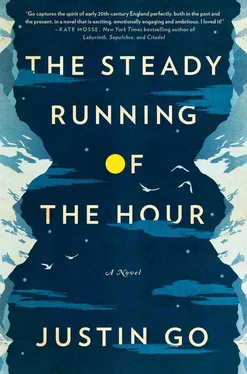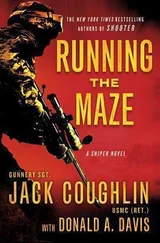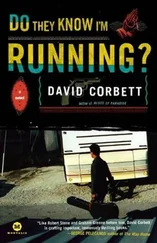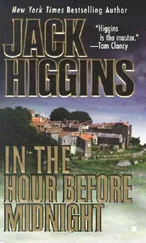— It’s a mess in there, Karin says. I don’t even know where we keep the key, I’d have to call my uncle.
— Is there stuff inside?
Karin shrugs. — A lot of junk, tools and furniture. The house is so old we’re not supposed to knock it down, but it’s not practical to use it. My uncle says he’s going to clean it out and restore it, but he never does.
Christian puts another beer in front of me.
— Have another one, Christian says. How’d you get here, anyway?
— I took the train from Uppsala.
— But how’d you get on the island?
— I slept on the beach last night. In the morning I found a boat on the shore and rowed it over.
Everyone laughs, considering this a joke.
— We should get started with cooking, Karin says. Tristan, will you stay for dinner?
Christian grins. — He only just rowed over.
As dusk falls we go into the newer house to cook, emptying bags of frozen crayfish into a boiling pot. Karin spreads a cloth over the table outside and I help one of the girls hang paper lanterns from the trees above. We sit and Karin makes a toast in Swedish, then we all drink aquavit, a golden Swedish liquor with a strong taste of caraway seed. Everyone devours dozens of crayfish, sucking the juice noisily from the tiny red shells. I eat only the salad and potatoes.
— You don’t like crayfish? Karin asks.
— I’m vegetarian.
— Then have another beer, Christian says. There’s your dinner.
We drink beer and vodka and more aquavit. At every toast the Swedes insist that we look one another in the eye. They talk in English at first, asking me questions about San Francisco and my Swedish relatives. But as the dinner goes on most of them switch back to Swedish. Karin is on the far side of the table and our eyes meet a few times, but she never speaks to me.
After dinner we walk down to a fire pit beside the shore. Christian and I light a bundle of newspaper under a teepee of spruce logs. We begin to drink the aquavit in earnest, for we’ve finished everything else. Someone staggers drunkenly into the woods. A second person sent to find him never returns. I throw more logs onto the fire and it grows larger and hotter until we all have to move a step back. Suddenly I realize it must be after midnight. That makes it August 28.
— It’s my birthday, I say. I’m twenty-three.
The Swedes cheer and congratulate me. Christian gives me a bear hug and Karin gently scolds me for not telling her sooner. They sing to me in Swedish and we swig the aquavit in a toast. I throw more wood onto the fire, watching the smoke spiral up to the sky, the stars seeming to go in and out of focus. Twenty-three. I’d come here at least, and that was something. I break a branch in half and throw it onto the fire. Karin nudges me with her elbow.
— How’s it feel, spending your birthday with a bunch of strangers?
— I don’t mind. It’s really beautiful up here.
She nods. — Sorry I was weird this morning, it just spooked me when you showed up—
— I’d be spooked too. It scared the hell out of me when I was coming up from the lake and I heard you guys. I wasn’t expecting to find anyone here.
— What were you expecting?
I shake my head. — Nothing. I figured I’d come here, the house would be gone, and I could forget—
— The house, she gasps. I totally forgot.
Karin grabs the bottle of aquavit and we start up the hill. She takes her cell phone from her pocket and selects a number, holding it to her ear. She winks at me.
— My uncle.
As she talks on the phone in Swedish, we walk up to the new house and go into the kitchen. She kneels down and pulls out the lowest drawer, fishing out a jar of keys. She finishes talking and puts the phone back in her pocket.
— He wasn’t even asleep, he watches TV all night. He said there used to be a few boxes from the old owners. Come on—
I follow her down the sloping field between the two houses, the stars bright above the trees. We reach the old house, its pine planks stained dark red, weathered by centuries of frigid winter and evening sun. Karin wiggles the key in the lock and pushes open the small wooden door.
— Happy birthday.
The inside is a mess. A dark mass of boxes and furniture stacked high, in some places nearly to the ceiling. We search for the light switch, but the wall is blocked by a huge table covered in boxes. I leave to get my headlamp from my bag, but when I return Karin has cleared a path to the light switch. She flips it on and off. Nothing happens.
— Maybe the bulb’s out. Or the fuse.
I switch on my headlamp, directing the beam over plastic crates and stacked chairs. A chain saw, a pile of wooden oars and planks leaning against the wall.
Karin laughs. — Ever seen so much junk?
— Sure. My parents’ garage used to look like this.
We take down a storage box and pull off the lid. A vacuum filter still in its dusty package. Cans of wood stain, boxes of white packing plaster. A thick catalog of SKF ball bearings. There’s a knock behind us as Christian appears in the doorway, saying something to Karin in Swedish. She turns to me.
— We’re going for a swim in the dark. Want to come with us?
— Maybe later. Is it all right if I look around here a little?
Karin shrugs. — Sure. Just let me know if you find anything. And don’t make a mess—
— Birthday swim, Christian interrupts. Let’s do it.
— I’ll be down later.
They walk out leaving the door open behind them. I shine my headlamp over the crevices of the room. The ceiling and walls are all dark wood, the roofbeams hanging low. There’s some kind of decorative textile hanging from the far wall, but it’s covered in dust and I can’t make out the subject. I pull another storage box from the table and look inside. Automobile repair manuals from the seventies. Yellowed composition books filled with longhand notes in Swedish. Brittle picture magazines. I stack the boxes behind me and start clearing a path to the staircase.

19 August 1916
The Regent’s Park
Marylebone, Central London
They cross the street and enter the park through a green wrought-iron gate. The grounds are pitch-black, only the searchlights weaving tracks among the clouds above.
— We’re lucky there aren’t sentries, Ashley says. If anyone sees us they’ll take us for spies.
— They’ll take us for what we are.
— Which is?
Imogen smiles but she does not answer. The sky mists dark rain upon their shoulders and they step in shadow through a curtain of hedges. Imogen trips on a root and tumbles, laughing as Ashley helps her to her feet. They come out onto a lawn and Imogen spreads her arms, trotting forward under a huge willow.
— Here it is. This is the tree.
— You’re certain?
Imogen nods and points authoritatively.
— The French gardens were to our left, the houses to the right. You were asking whether I was properly English or not—
Ashley kneels on the damp grass, running his hands through the foliage.
— It isn’t here. I don’t see it.
They circle the tree, each following the other as they scan the grass, kneeling, their fingers groping among shadows. After a few circuits Imogen sighs.
— I suppose you were right. We shan’t find it here.
Imogen lifts her face to the rain and puts her hands out to feel the gathering droplets. She crouches at the foot of the willow, testing the dampness of the earth.
— You’ll get wet if you sit there, Ashley warns.
— I don’t mind.
She sits down and leans back against the tree trunk. Ashley continues to inspect the grass, orbiting the tree with his eyes fixed upon the ground.
Читать дальше













